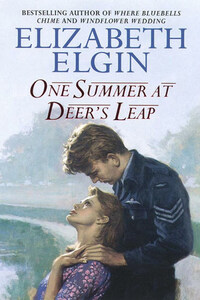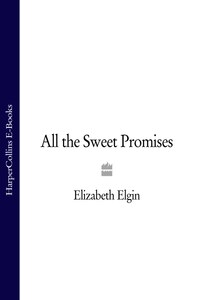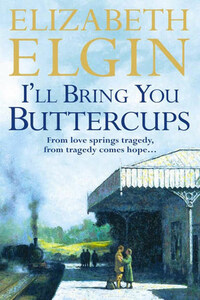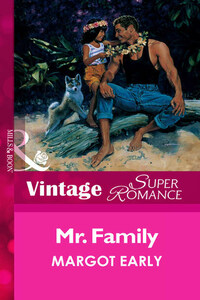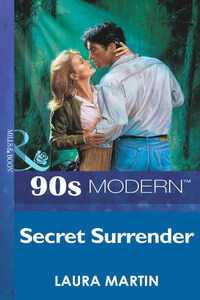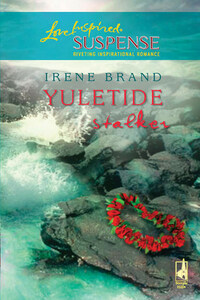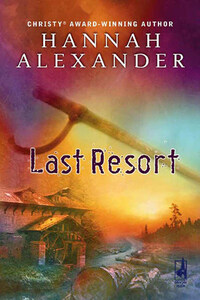I suppose it was to be expected that someone with a name like mine should one day do something a bit out of the ordinary, like deciding to be a novelist.
I do things by numbers. I’d finished my fifth novel – the other four had been rejected out of hand – and sending it out one last, despairing time was as far as I was prepared to go. One more rejection, and that was the end of Cassie Johns, novelist!
‘You’ll turn her head with a fancy name like that,’ Dad had said when I was born because he wanted me called after his sister Jane, and Mum, who had been wavering and half prepared to agree with him, dug her heels in with uncharacteristic ferocity. And Aunt Jane, bless her, sided with Mum and said that Cassandra would do very nicely, to her way of thinking!
Dear, lovely Aunt Jane was the reason I was here now, a novelist at last, driving my own car and smiling foolishly at a passing clump of silver birches and the foxgloves that grew beneath them, and so stupidly smug and self-satisfied I didn’t notice the revs had dropped to a warning judder and I was being overtaken by a farm tractor.
‘Don’t give in, Cassie,’ Aunt Jane had urged. ‘Just one more try to please your old auntie?’
So instead of giving in and doing the rounds of the universities as Dad had always supposed I would when I got three decent A levels, I wrote Till Hell Freezes Over with a kind of despairing acceptance that my father had been right all along. After working for four years – and four useless novels – on the marketing side of Dad’s horticultural business (selling vegetables and flowers at the top of the lane in summer and working in the propagating houses in winter) I posted off the novel for the fifth time, then settled down to accept defeat. And university, if I was lucky.
My last-stand novel was unbelievably, wonderfully, gloriously accepted. One or two changes were needed, said the publishing lady to whom I spoke an hour after receiving the letter. A little editing – perhaps a different title? Could I go to London and talk to her? Would tomorrow be convenient? I’d asked breathlessly.
It was to be two weeks later that I eventually met my editor, because after a do in the local and everybody in the village having a knees-up to celebrate the emergence of an author in their midst, Aunt Jane died in her sleep that same night.
The milkman became concerned because she didn’t answer to his knock, and came at once to tell us. We found her curled up under her patchwork quilt with such a look of contentment on her face that we knew her going had been gentle.
Had she been thinking of the three sherries of the night before, or her niece’s success? Whatever the reason for that smile, we could only be sorry for ourselves because there hadn’t been a last goodbye. For Jane Johns there was only relief that she had gone the way most people would like: peacefully, in her sleep.
She left her cottage to Dad, the contents to me and sufficient money in her bankbook to pay for a good funeral with a decent knife-and-fork tea to follow. And to Mum’s surprise and consternation – because Aunt Jane had never been one to gamble – she also left me two thousand pounds in Premium Bonds.
I’m still sad that she didn’t live to see my novel, with an eye-catching jacket and its title changed to Ice Maiden, hit the bookshelves, and sorrier still she wasn’t there the Sunday it made the lists, albeit at the bottom. I wondered if, with a first novel, I hadn’t been just a bit too lucky and wouldn’t I walk under a bus the very next time I crossed the road, because of it? Then I got all weepy inside and went to the churchyard to tell the one person who really mattered – at least as far as Ice Maiden was concerned. And Aunt Jane chuckled and said that with a name like Cassandra she’d always known I’d be famous one day, and how about writing a real hot number next, so I could be infamous?
‘And isn’t it about time you cashed those Premium Bonds,’ she said, ‘and bought yourself a little car?’
Aunt Jane and I could talk to each other, not with words, but with our minds, because truth known she and I both were kind of psychic.
‘I’ll have to cash them – when I get them,’ I told her. ‘The solicitor said that Premium Bonds aren’t transferable.’
‘Well then, that’s settled, Cassie girl. You deserve a car.’
I bought a second-hand Mini with Aunt Jane’s money: one careful owner, 20,000 miles on the clock. The bodywork was immaculate, as if the careful owner had spent more time polishing it than driving it. But it was the colour that finally clinched it. Bright red. Aunt Jane would have approved. Even so, Dad felt duty-bound to say, ‘You don’t get something that looks as good as that thing for two grand. There’s a catch.’
